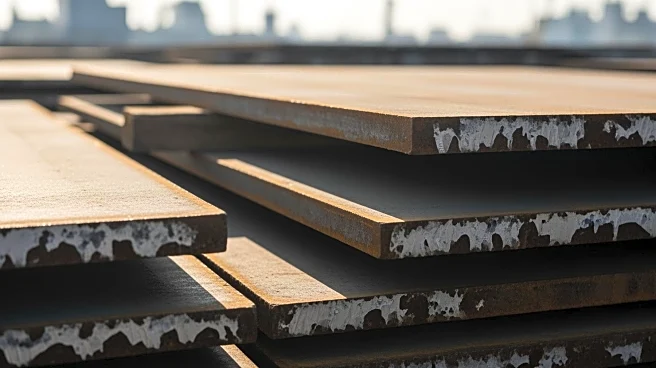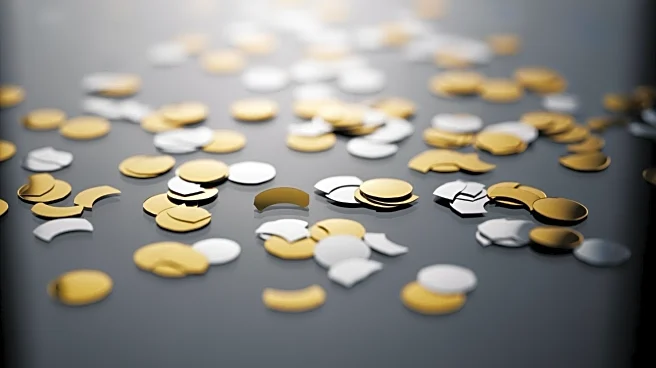What's Happening?
A report by NGO Shipbreaking Platform, Sandbag, and the University of Tuscia emphasizes the role of scrap steel from end-of-life ships in decarbonizing the European steel industry. The report advocates for a shift from carbon-intensive blast furnace steelmaking
to low-carbon electric arc furnace technology, which can utilize high-quality scrap steel. Europe’s shipping sector holds a significant resource of high-quality steel, currently processed under unsafe conditions abroad. The report suggests policies for traceability, enforcement, and financial incentives to integrate ship scrap into a circular, low-carbon steel economy.
Why It's Important?
The integration of ship scrap steel into European steelmaking could significantly reduce carbon emissions and energy consumption, contributing to the EU's climate targets. Recycling ship steel can cut CO2 emissions by up to 80% compared to virgin materials. This approach not only offers environmental benefits but also presents a strategic opportunity for European industry to enhance sustainability and competitiveness. The report highlights the potential for collaboration between maritime, steel, and construction industries to close material loops and scale circular solutions.
What's Next?
Upcoming EU policies, such as the Circular Economy Act and the Industrial Accelerators Act, are expected to support sustainable ship recycling. Enhanced traceability and documentation will be crucial for integrating ship scrap into Europe’s industries. The report calls for explicit support for ship recycling in line with EU circularity principles, which could lead to increased recycling capacity and economic benefits.















